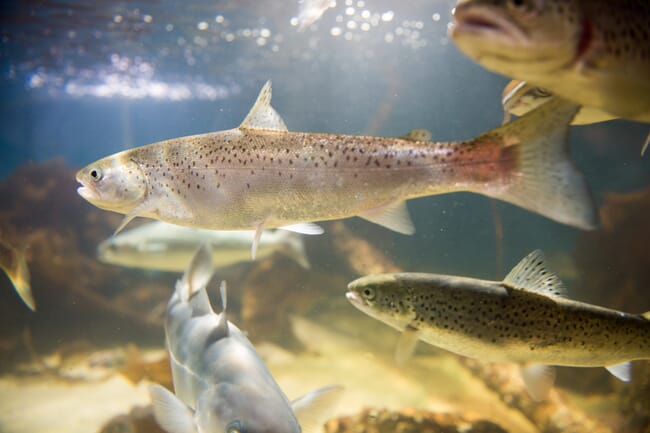A new study in Science of Food and Agriculture explores the viability of black soldier fly larvae as a sustainable fishmeal replacement for Atlantic salmon aquaculture. The researchers wanted to determine if salmon fed black soldier fly larvae had comparable quality indicators to salmon reared with conventional aquafeed.

The researchers fed sea-water stage Atlantic salmon a fishmeal-free diet. The feed used black soldier fly larvae that had been reared on kelp media and mixed organic wastes (at a 60:40 ratio). When the fish were processed, the researchers analysed the nutrition content of the finished fillets. The fillets also underwent a side-by-side consumer taste-test to determine whether consumers would purchase salmon raised on insect-based feed.
Results
The researchers found that completely replacing fishmeal with insect meal didn’t impar the physio-chemical quality of the salmon fillets. When the finished fillets were analysed, they showed an increase in polyunsaturated fatty acids – indicating a potential cardioprotective benefit for humans.
During the consumer taste test, the respondents could not identify which sample had been reared on insect meal. The respondents reported that they enjoyed the salmon and would consider purchasing the fillets if they were available commercially.
Background
For aquaculture to remain sustainable, the aquafeed sector needs to find an alternative to fishmeal. Fishmeal, a key ingredient in aquaculture feed, is nutritionally dense and can be easily digested by the fish. However, relying on the commodity has economic and ecological drawbacks. High quality fishmeal is expensive and creating the product depletes wild fish stocks. Fishmeal alternatives are on the market, but these products tend to yield poorer results in terms of performance and health outcomes.



